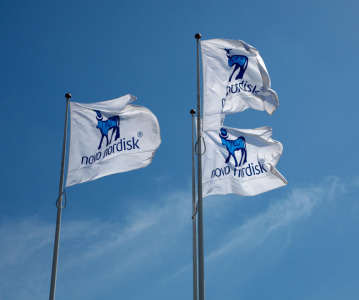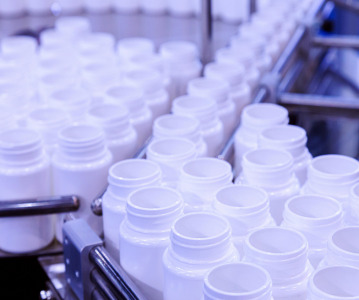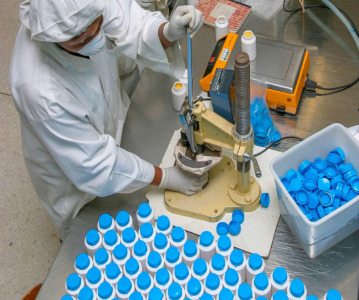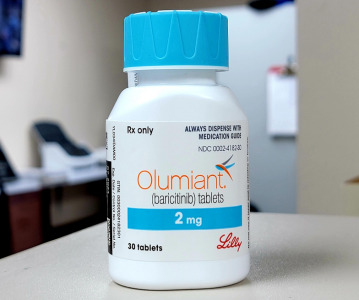Lonza expands microbial capacity and extends partnership with Servier for L-asparaginase API manufacturing
.jpg)
Lonza's Visp, Switzerland, site.
New mid-scale microbial facility will support Servier with API for acute lymphoblastic leukemia therapies.
Lonza's microbial manufacturing facility in Visp, Switzerland is poised for expansion so that it can provide mid-scale commercial manufacturing to multiple customers and serve the growing needs of Servier, an independent international pharmaceutical company and long-term Lonza partner.
Servier and Lonza have signed a long-term extension to the manufacturing agreement for L-asparaginase, produced at Lonza since 2009.
The extension and expansion of the collaboration will provide Servier with the additional capacity required to provide treatment to many more patients with acute lymphoblastic leukemia (ALL), a cancer of the white blood cells.
Servier intends to expand access to asparaginase-based multi-agent chemotherapeutic regimens, as ALL continues to be the most common type of cancer among children diagnosed with leukemia.
The new facility will be the sixth to be housed in Lonza’s new biopark in Visp, Switzerland, currently under construction.
The new mid-scale (3,000 L) microbial facility will tap into existing central utilities and labs and will complement the existing small-scale (1,000 L) and large-scale (15,000 L) assets in Visp. The facility is expected to be operational in the second half of 2022 and Lonza expects to add 100 new staff to the existing, highly-experienced microbial team.
Traditionally used for producing hormones, enzymes and some vaccines, microbial fermentation is becoming increasingly attractive for new molecular formats that do not need human glycosylation given the higher yields and shorter production timelines. For example, many antibody fragments, as well as plasmid DNA, can be produced in microbial systems.
Jean-Christoph Hyvert, Chief Commercial Officer, Lonza said: "We see a clear role for microbial technology as new medicines evolve and we are investing in key enablers including expression technology and manufacturing assets.”
Related News
-
News Women in Pharma: Moving beyond discussions and into best practice at CPHI Milan
In this second CPHI Milan special of our monthly series, we cover the key takeaways from the Diversity & Wellbeing track held on October 10, 2024. -
News AstraZeneca invests in AI collaboration for cancer drug trials
The British-Swedish pharmaceutical giant is partnering with biotechnology firm Immunai Inc to increase the efficiency of some cancer drug trials. -
News Ozempic and Wegovy prices questioned as Novo Nordisk faces US Senate hearing
The CEO of Novo Nordisk was grilled during a US Senate committee hearing on September 24, 2024, in which the exorbitant prices of the Danish company’s blockbuster drugs Ozempic and Wegovy were called into question. -
News The BIOSECURE Act: implications for the pharma supply chain
On September 9, 2024, the US House of Representatives voted to pass the bill titled the BIOSECURE Act (the Act), which lists several Chinese companies in the pharmaceutical supply chain. The Act will prohibit American companies from contracting or doin... -
News On Track at CPHI Milan: Thermo Fisher Scientific Track Sponsor interview
With CPHI Milan just around the corner, we sat down with some of the sponsors for this year’s conference tracks to discuss the most pressing topics in pharma. -
News CPHI Milan Speaker Spotlight: Pharma Manufacturing and Localisation in Africa
In the run-up to CPHI Milan, we sit down with some of the experts and thought-leaders speaking at this year’s conferences. -
News US BIOSECURE Act passed by US House of Representatives
The controversial act, which has already impacted several foreign companies operating in the US, was passed by the House of Representatives on September 9, 2024. It is now headed for the US Senate before it can be signed into law by President Joe Biden... -
News Eli Lilly licenses rheumatoid arthritis manufacturing in Africa
American pharmaceutical company Eli Lilly has signed a partnership with Egyptian organisation Eva Pharma to localise manufacturing of rheumatoid arthritis treatments in Africa.
Position your company at the heart of the global Pharma industry with a CPHI Online membership
-
Your products and solutions visible to thousands of visitors within the largest Pharma marketplace
-
Generate high-quality, engaged leads for your business, all year round
-
Promote your business as the industry’s thought-leader by hosting your reports, brochures and videos within your profile
-
Your company’s profile boosted at all participating CPHI events
-
An easy-to-use platform with a detailed dashboard showing your leads and performance

.png)





